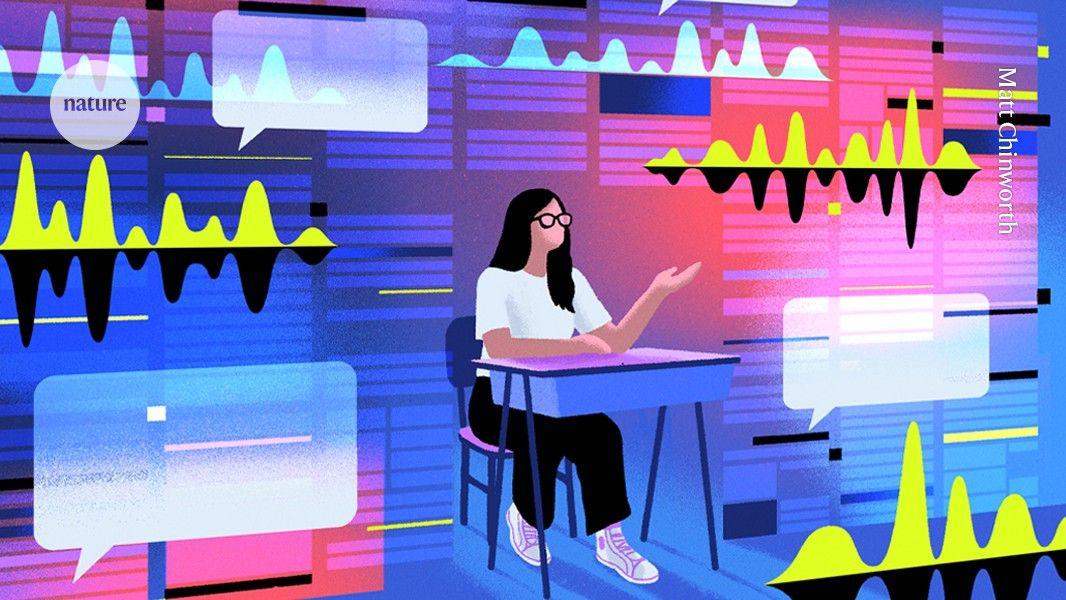The AI Homework Dilemma: Balancing Technology and Educational Integrity
2 Sources
2 Sources
[1]
Does students' use of AI spell the end for homework? | Opinion
When a student turns in a writing assignment done at home and it's clear parts of the finished piece don't represent the kind of work the student usually does in the classroom, should the teacher grade it anyway? This is the dilemma educators face now as our youngest generations grow up in a world of artificial intelligence. Students look to get credit for work done by a digital tool. It's modern-day cheating. There used to be a time when educators would tell parents not to do their child's homework because it didn't benefit them in the long run. Those conversations could get contentious. I would often suggest to teachers to ask their students if they did the work or their parents. Children often would tell the truth. Unfortunately, it's more complex now. Parents aren't often doing the work, but for some students, a computer is. The question remains: Should homework become a thing of the past? With youths having access to AI, how do we know if students are doing the homework themselves? There are compelling arguments for and against homework. The website Helpful Professor notes that homework is time-consuming and stressful, contributes to anxiety, and is inequitable because some students don't have caregivers who can help. On the other hand, it teaches discipline, helps students manage their time better and gives students self-paced learning time. In my experience as a school leader, very few topics inspire such positive and negative comments from teachers as homework. What can help guide decisions is understanding the community and the students being served. Education in the United States is a state matter and allows for local control. A one-size-fits-all approach is not advantageous and does not take into account the differing resources and circumstances among communities. I am a big proponent of homework. That does not mean that it is best for every student. Each district should discuss what is best for the students and families they serve. However, before we use AI as a reason to forgo homework, what does the data say? More than 50% of 1,274 young people ages 14 to 22 reported using generative AI at some point in their lives, according to a 2023 survey from NORC at the University of Chicago and other research groups. Broken down further, 12% and 11% report using it once or twice per month or once or twice per week, respectively. This data tells us that AI is not being used as often as we think -- at least not yet. In a study conducted by Pew Research Center in 2023, a quarter of the teachers said the use of AI tools in education does more harm than good. Almost a third said there is some benefit -- as well as some cause for concern. Before use among students increases dramatically, educators and institutions of learning have an opportunity and an obligation to talk about the ethical responsibilities that students and parents have when using AI. The key is using AI in a way that does not stymie a student's creativity or replace the work they are supposed to do on their own. Teaching and expecting ethical responsibility from our youths should be a requirement at all educational institutions. As we teach these principles, hopefully, future generations will take these lessons to the labor force when they are older. When the new school year begins, districts will have to decide their stance on homework. Whatever it may be, we cannot absolve young people of their responsibilities. Teach them to do the right thing.
[2]
Commentary: Does students' use of AI spell the end for homework?
When a student turns in a writing assignment done at home and it's clear parts of the finished piece don't represent the kind of work the student usually does in the classroom, should the teacher grade it anyway? This is the dilemma educators face now as our youngest generations grow up in a world of artificial intelligence. Students look to get credit for work done by a digital tool. It's modern-day cheating. There used to be a time when educators would tell parents not to do their child's homework because it didn't benefit them in the long run. Those conversations could get contentious. I would often suggest to teachers to ask their students if they did the work or their parents. Children often would tell the truth. Unfortunately, it's more complex now. Parents aren't often doing the work, but for some students, a computer is. The question remains: Should homework become a thing of the past? With youths having access to AI, how do we know if students are doing the homework themselves? There are compelling arguments for and against homework. The website Helpful Professor notes that homework is time-consuming and stressful, contributes to anxiety, and is inequitable because some students don't have caregivers who can help. On the other hand, it teaches discipline, helps students manage their time better and gives students self-paced learning time. In my experience as a school leader, very few topics inspire such positive and negative comments from teachers as homework. What can help guide decisions is understanding the community and the students being served. Education in the United States is a state matter and allows for local control. A one-size-fits-all approach is not advantageous and does not take into account the differing resources and circumstances among communities. I am a big proponent of homework. That does not mean that it is best for every student. Each district should discuss what is best for the students and families they serve. However, before we use AI as a reason to forgo homework, what does the data say? More than 50% of 1,274 young people ages 14 to 22 reported using generative AI at some point in their lives, according to a 2023 survey from NORC at the University of Chicago and other research groups. Broken down further, 12% and 11% report using it once or twice per month or once or twice per week, respectively. This data tells us that AI is not being used as often as we think - at least not yet. In a study conducted by Pew Research Center in 2023, a quarter of the teachers said the use of AI tools in education does more harm than good. Almost a third said there is some benefit - as well as some cause for concern. Before use among students increases dramatically, educators and institutions of learning have an opportunity and an obligation to talk about the ethical responsibilities that students and parents have when using AI. The key is using AI in a way that does not stymie a student's creativity or replace the work they are supposed to do on their own. Teaching and expecting ethical responsibility from our youths should be a requirement at all educational institutions. As we teach these principles, hopefully, future generations will take these lessons to the labor force when they are older. When the new school year begins, districts will have to decide their stance on homework. Whatever it may be, we cannot absolve young people of their responsibilities. Teach them to do the right thing. ____ Jerald McNair is a school administrator in South Holland School District 151, near Chicago. McNair has a doctorate degree in education and a graduate degree in public policy. ___
Share
Share
Copy Link
As AI becomes more prevalent in students' lives, educators grapple with the challenge of maintaining academic integrity in homework assignments. This article explores the pros and cons of homework in the age of AI and discusses potential solutions.
The Rise of AI in Education
The integration of artificial intelligence (AI) in education has sparked a heated debate about the future of homework. As students increasingly turn to AI tools for assistance, educators are grappling with a modern form of cheating that challenges traditional assessment methods. More than 50% of young people aged 14 to 22 reported using generative AI at some point, according to a 2023 survey from NORC at the University of Chicago
1
2
.
Source: Seattle Times
The Homework Dilemma
Homework has long been a contentious topic in education, with arguments both for and against its effectiveness. Proponents argue that it teaches discipline, time management, and provides self-paced learning opportunities. Critics, however, point out that homework can be time-consuming, stressful, and contribute to anxiety. Moreover, it may exacerbate educational inequities, as some students lack the necessary support at home
1
2
.AI Usage Among Students
Despite concerns, current data suggests that AI is not being used as frequently as feared. The NORC survey revealed that only 12% and 11% of respondents use AI once or twice per month or once or twice per week, respectively
1
2
. This indicates that while AI adoption is significant, it has not yet become ubiquitous in students' academic routines.Educators' Perspectives on AI
A 2023 Pew Research Center study found that educators have mixed views on AI in education. Approximately 25% of teachers believe AI tools do more harm than good, while nearly a third see both benefits and concerns
1
2
. This divide highlights the complex nature of integrating AI into educational practices.Ethical Considerations and Future Directions
As AI usage among students is likely to increase, educational institutions face the challenge of addressing the ethical implications of AI in academic work. Jerald McNair, a school administrator with a doctorate in education, emphasizes the importance of teaching ethical responsibility to students regarding AI use
1
2
. The goal is to harness AI's potential without compromising students' creativity or replacing their independent work.Related Stories
Local Control and Customized Approaches
Given the diverse needs of different communities, a one-size-fits-all approach to homework and AI usage is not advisable. Education in the United States is primarily a state and local matter, allowing for tailored solutions that consider the specific resources and circumstances of each community
1
2
.The Path Forward
As the new school year approaches, school districts must carefully consider their stance on homework in the age of AI. While the debate continues, there is a growing consensus that students should not be absolved of their academic responsibilities. Instead, educators are called upon to teach students how to use AI ethically and responsibly, preparing them for a future where AI will likely play an increasingly significant role in both education and the workforce
1
2
.References
Summarized by
Navi
[1]
[2]
Related Stories
Recent Highlights
1
ByteDance's Seedance 2.0 AI video generator triggers copyright infringement battle with Hollywood
Policy and Regulation

2
Demis Hassabis predicts AGI in 5-8 years, sees new golden era transforming medicine and science
Technology

3
Nvidia and Meta forge massive chip deal as computing power demands reshape AI infrastructure
Technology








